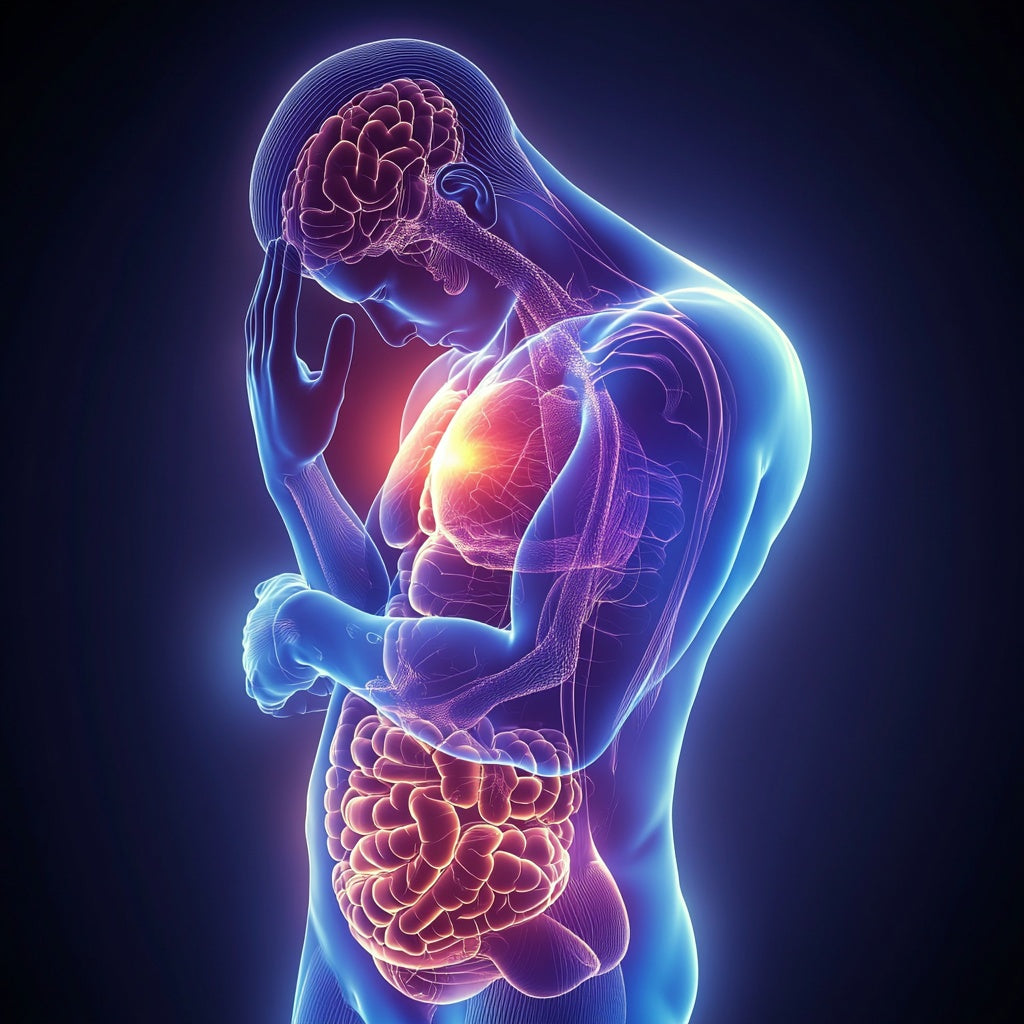
Exploring the Gut-Brain Connection: How Mushrooms influence Gut Health Diabetes and Mental Well-being
04/03/25Share
Table of contents

Explore how gut health combats diabetes and psilocybin’s role in mental wellness through the gut-brain axis. Dive into groundbreaking scientific insights!
The intricate relationship between the gut and overall health continues to captivate scientists and health enthusiasts alike. A recent study published in *The Journal of Molecular Biology* sheds light on how gut health impacts diabetes management and mental well-being, offering groundbreaking insights into the microbiome's role in shaping human health.
The Gut Microbiome: A Health Powerhouse
The gut microbiome, a complex ecosystem of trillions of bacteria, fungi, and other microorganisms residing in the digestive tract, plays a pivotal role in regulating bodily functions. From digestion to immune system modulation, these microbes are integral to maintaining balance within the body. However, their influence extends far beyond the gut.
Emerging research underscores the gut-brain axis—a bidirectional communication network linking the gut and brain. This connection is increasingly recognized as a key player in managing chronic diseases such as diabetes and mental health conditions like depression and anxiety.
Gut Health and Diabetes Defense
One of the study's most compelling findings is how gut health can bolster defenses against diabetes. Poor gut microbiome diversity has been linked to insulin resistance, a precursor to Type 2 diabetes. Conversely, a healthy microbiome supports glucose metabolism and reduces inflammation—two critical factors in managing diabetes effectively.
Certain beneficial bacteria, such as *Akkermansia muciniphila*, have been identified as particularly protective. These microbes help maintain the integrity of the intestinal lining and reduce systemic inflammation, both of which are essential for preventing metabolic disorders.
Psilocybin’s Role in Mental Health Reset
The study also explored how psilocybin—a psychedelic compound found in "magic mushrooms"—interacts with gut health to influence mental well-being. Psilocybin has gained attention for its ability to "reset" neural pathways associated with depression and anxiety. Interestingly, researchers suggest that its effects may be partially mediated through the gut-brain axis.
Psilocybin appears to enhance serotonin signaling, which is closely tied to both mood regulation and gut function. This dual action highlights the interconnectedness of mental health and microbiome health, paving the way for innovative therapeutic approaches that address both simultaneously.
Optimizing Gut Health for Holistic Wellness
Given these findings, prioritizing gut health emerges as a cornerstone for both physical and mental wellness. Here are some actionable steps to support a thriving microbiome:
- Dietary Choices: Incorporate fiber-rich foods like fruits, vegetables, whole grains, and fermented products such as yogurt or kimchi to nourish beneficial bacteria.
- Probiotics and Prebiotics: Supplements can help restore balance in the microbiome, especially after illness or antibiotic use.
- Stress Management: Chronic stress negatively impacts gut health; practices like meditation or yoga can mitigate its effects.
- Mindful Medication Use: Avoid overuse of antibiotics, which can disrupt microbial diversity.
A New Frontier in Health Research
This study adds to a growing body of evidence highlighting the profound impact of gut health on various aspects of human well-being. By understanding and nurturing the microbiome, individuals can take proactive steps toward preventing chronic diseases like diabetes while enhancing mental resilience.
As science continues to uncover the mysteries of the gut-brain connection, it is clear that maintaining a healthy microbiome is not just about digestion—it’s about unlocking a healthier mind and body.
Frequently Asked Questions
What is the gut-brain axis?
The gut-brain axis is a bidirectional communication network connecting your gastrointestinal system and central nervous system. It enables constant chemical and electrical signaling between gut microbes and the brain, influencing both physical health and mental well-being[1].
How does gut health affect diabetes risk?
A diverse gut microbiome helps regulate glucose metabolism and reduces inflammation. Specific bacteria like Akkermansia muciniphila strengthen the intestinal lining, improving insulin sensitivity and protecting against Type 2 diabetes[1][3].
Can psilocybin really improve mental health?
Emerging research suggests psilocybin may "reset" neural pathways associated with depression by enhancing serotonin signaling. This compound appears to work through both direct brain effects and indirect gut microbiome interactions[1][5].
What foods support gut health?
Focus on fiber-rich plants (fruits, vegetables, whole grains) and fermented foods (yogurt, kimchi, kefir). These nourish beneficial bacteria and help maintain microbial diversity in your digestive system[4].
How do antibiotics impact gut health?
While sometimes necessary, antibiotics can significantly reduce microbial diversity. The study recommends probiotic supplementation and phytonutrient-rich diets to help restore balance after antibiotic treatments[2][4].





